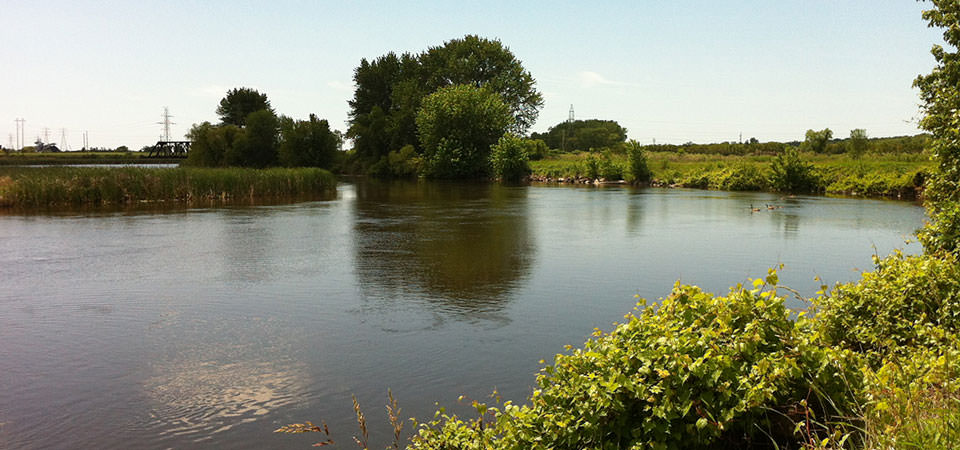NOAA helps save nearly 100 wetland acres for Michigan restoration
Muskegon County made the wetlands purchase with the aid of NOAA funding.

Let the Restoration Begin!
Wetlands restoration within the Muskegon Lake Area of Concern will focus on problems such as sediment contamination, reduced habitat, and a lack of public access.
The Great Lakes hold 20 percent of the world's fresh surface water, making habitat restoration critically important for severely degraded industrial areas near their shores. In Michigan, NOAA has moved that goal forward by supporting the recent purchase of 98.8 wetland acres near Muskegon Lake, which feeds directly into Lake Michigan.
"NOAA and its partners soon will start restoration work to improve wildlife habitat, boost public access, and improve water quality through restoring and reconnecting wetlands to the riverine systems," says Elizabeth Mountz, a coastal management specialist for NOAA's Office for Coastal Management. "This project moves us closer to the day when the larger Muskegon Lake area is a more vital place for natural resources and wildlife, the community, and the coastal economy."
Muskegon County made the wetlands purchase with the aid of NOAA funding. This natural resource forms part of the Muskegon Lake Area of Concern, one of 43 degraded industrial areas in the Great Lakes basin identified in 1987 and prioritized for cleanup and restoration by the U.S. and Canada.

Putting Restoration on the Map
The overall restoration plan will upgrade water quality for both Muskegon Lake and Lake Michigan by addressing algal blooms and a decline in lake oxygen.
A lack of funding stymied intensive U.S. cleanup efforts until 2010, when the Obama administration budgeted $475 million for the new Great Lakes Restoration Initiative to jump-start national restoration action.
Over the past four years, NOAA has allocated nearly $4 million to support 13 "area of concern" land acquisition projects in four Great Lakes states. Grants are awarded to state and local partners to protect critical coastal lands through land purchases and conservation easements.
Four U.S. sites have now been "delisted" as areas of concern following intensive restoration, which is the eventual goal for the Muskegon Lake site.
This wetlands purchase supports the NOAA Habitat Blueprint initiative, which identified the Muskegon Lake site as a habitat focus area and directed restoration and water quality improvements.
Did you know?
NOAA's Office for Coastal Management supported the wetlands purchase, and NOAA's National Marine Fisheries Service will oversee restoration engineering and design. Other restoration partners include the Michigan Department of Environmental Quality, U.S. Environmental Protection Agency, and local and regional communities.
